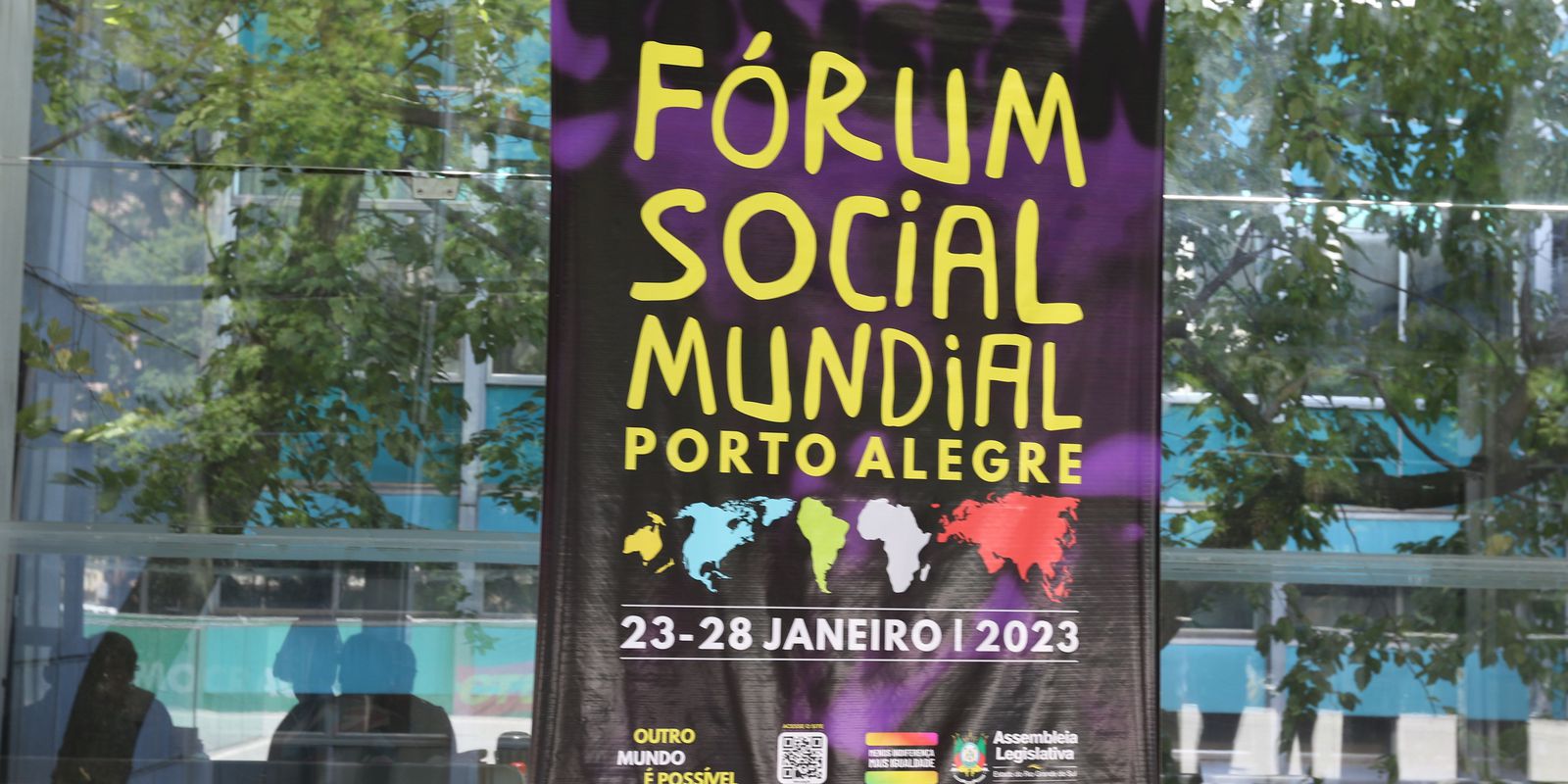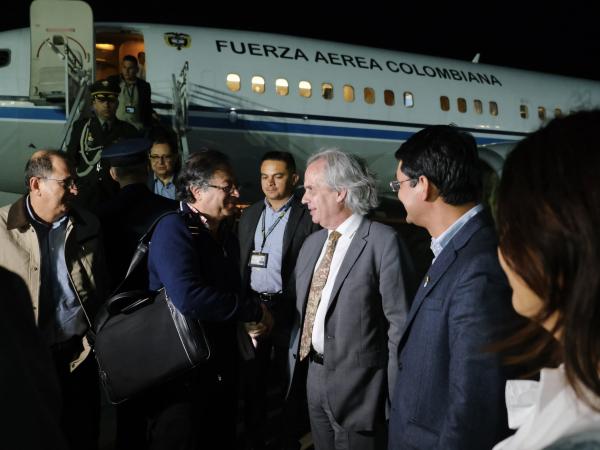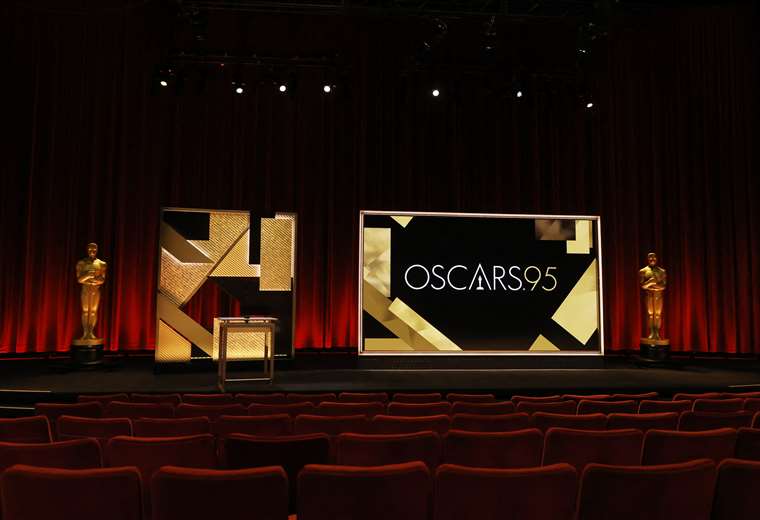Strengthen the public communication network and Brazil Communications Company (EBC), expand the promotion of regional and popular communication and reform the Decree 2615 of 1998which regulates the Community Broadcasting Service in the country, instituted by Law 9,612 of 1998. These were some of the claims presented by entities linked to the democratization of communications that participated today (24) of a round of dialogue on the subject at the World Social Forum, which began yesterday in Porto Alegre.
The president of the Brazilian Association of Community Radios (Abraço), Geremias dos Santos, points out that the law on community radios represented a breakthrough for the sector, but the decree placed constraints that were not in the approved legislation, such as the restriction of power to reach one kilometer and a ban on advertising, even for small businesses in the community.
“We want to have access to public and private media funding. We live in a capitalist country, we are present in over 3,500 municipalities. It is absurd that we are prohibited from accessing this amount. Not only the public, but João’s market, which cannot advertise, this is truly absurd. The decree created a coverage area of one kilometer, which was not in the law. The decree is worse than the law and this accursed inheritance needs to be revised”.
Abraço also claims the maintenance of the AM frequency for use by social movements, since, according to Geremias, there are still many medium wave listeners in the country.
“We want AM radio to go to the social movement. Commercial radios asked for migration to FM, but there are still many people who only listen to AM. For several sectors, the banner is still important”, he highlighted.
Another suggestion made by the movement is to transform community radio stations into Communication Points, using the Pontos de Cultura model, created in 2004 by the Ministry of Culture, which promoted groups and cultural centers throughout Brazil. According to Geremias, the country has today over 8,000 community radio stations in over 3,000 municipalities.
Alternative media and public communication
The coordinator of the Barão de Itararé Media Studies Center, Larissa Gould, highlighted the importance of strengthening alternative and regional media, in addition to public and community media.
“Brazil has many municipalities that are news deserts [não possuem nenhum veículo de comunicação], then the appreciation of small newspapers can generate jobs and information in places where the big media do not operate. It is necessary to define a democratic and transparent policy for the distribution of official and institutional advertising, with allocation of resources that consider criteria of diversity and inclusion”.
Among the claims presented by the entities are also the return of the Board of Trustees of the EBCwhich was extinguished by provisional measure after the impeachment of President Dilma Rousseff in 2016, and the inclusion of media education content in schools, as a way to combat misinformation.
Forum participants also mentioned strengthening the EBC and the national public communication network, universal access to broadband Internet, with the possibility of creating local networks, and the protection of sensitive data of governments and individuals, as well as the regulation of means to avoid, for example, the concentration of vehicles in the hands of a few owners and cross-ownership in the same territory. In addition to overseeing grants to combat hate speech and misinformation and ensure respect for human rights in programming.
The former president of the Board of Trustees of the EBC, Rita Freire, who is part of the transition group at the company, stated that her presence in the group is the guarantee that civil society will be heard in the repressed demands in these six years, a period in which it was resistance was organized to keep the idea of public communication alive in Brazil.
“I have the feeling that this group of civil society organizations, who think about communication and communication strategies, who want to act in society in order to transform it, need to have this debate. I come from that and now I’m participating in a group within EBC, to organize the look, the sensitive areas within the company, the schedule. THE EBC was prepared to be a device in case of a coup and we need to create a network to protect public communication and EBC”.
If with
After listening to the demands, the Director of Promotion of Freedom of Expression, of the Secretariat for Digital Policies, Samara Castro, representing the Secretariat of Communication of the Presidency of the Republic (Secom), guaranteed that the themes will be taken to Minister Paulo Pimenta and discussed in the government , in order to guarantee rights and advance in the conquests for the community and public broadcasting sector.
“It’s very important to have this listening space, I already have a notebook full of notes. We will to have to run after to achieve these new conquests, but without losing rights and also guaranteeing new rights. There were four years of lack of debate, listening and realization, so there is this anxiety for immediate achievements. I don’t have the answers right now, but let’s be mindful of these important questions for building democracy.”
The suggestions presented in the activity Without democratic communication there is no real democracy will be forwarded in the form of a book of proposals to Secom.
The Forum goes to fridayfair and the participation of activists from various social movements is expected, such as indigenous leaders, the black movement, LGBTQIA+, students and trade unionists, in addition to the Ministers of Culture, Margareth Menezes, and Health, Nísia Trindade, and the vice-president of the Colombia, Francia Marquez.









